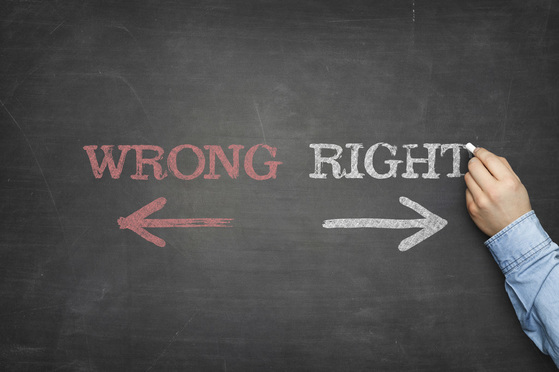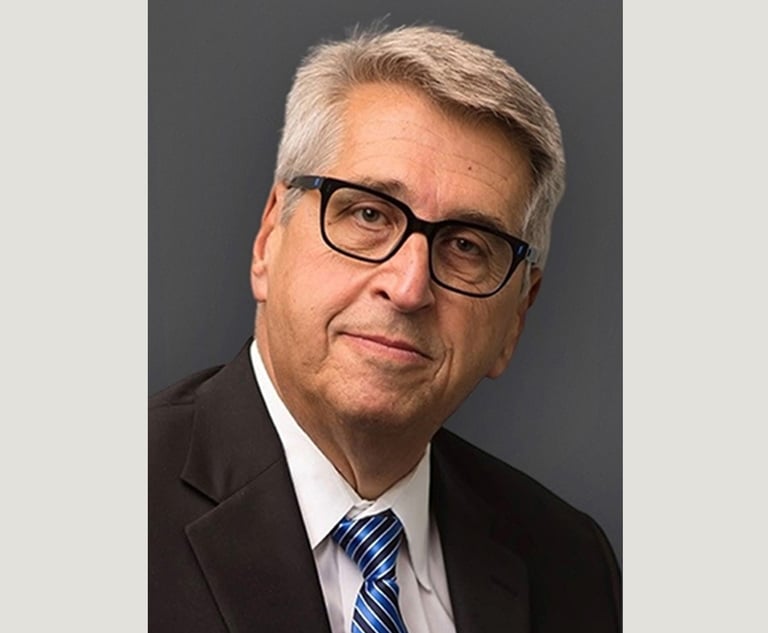See Something, Say Something?
The legal profession is, in theory, self-regulating. If an attorney observes misconduct by another attorney, many states will place obligations on…
November 19, 2018 at 02:54 PM
6 minute read

The legal profession is, in theory, self-regulating. If an attorney observes misconduct by another attorney, many states will place obligations on the observing attorney to report what they have seen. Some states even will discipline those attorneys who fail to report misconduct they've observed.
Texas, for one, has a mandatory reporting rule similar to that contained in Model Rule of Professional Conduct 8.3. Regardless of whether reporting is mandatory or permissive, however, an attorney that learns that another attorney destroyed evidence or misappropriated client funds, for example, may feel obligated to alert the bar. The question of whether reporting is appropriate (or required) involves a number of considerations depending on the circumstances and the jurisdiction.
Most notably, an attorney can consider whether reporting is consistent with the ethical duties owed to her or his clients. Even in jurisdictions where reporting is mandatory, reporting can be excused under certain circumstances in order to protect the client's confidential information. In permissive jurisdictions, an attorney or law firm may nonetheless choose to report, but first can consider whether reporting is permitted under the ethical rules and is in the best interests of the client.
The Texas Rule: Mandatory, But With Limits
Rule 8.03 of the Texas Disciplinary Rules of Professional Conduct provides that “a lawyer having knowledge that another lawyer has committed a violation of applicable rules of professional conduct that raises a substantial question as to that lawyer's honesty, trustworthiness or fitness as a lawyer in other respects, shall inform the appropriate disciplinary authority.” Thus, the rule requires reporting in these situations — but only for those violations that purportedly raise a question as to the attorney's honesty, which can be a complex inquiry.
The rule goes on to provide other exceptions to the mandatory reporting requirement. First, where the reporting attorney knows or suspects that the offending lawyer “is impaired by chemical dependency on alcohol or drugs or by mental illness,” the reporting lawyer may report that lawyer to an approved peer assistance program rather than to a disciplinary authority. This exception recognizes that sometimes lawyers' misconduct can be a result of impairment, which is a rampant concern in the legal industry that bars are taking steps to address.
Second, the rule notes that it does not require disclosure of knowledge or information otherwise protected as “confidential” by Rule 1.05. The comments to Rule 8.03 suggest that “a lawyer should encourage a client to consent to disclosure where prosecution of the violation would not substantially prejudice the client's interests.”
The comments to Rule 8.03 also recognize the difficulty a lawyer may have being “certain” that a violation has taken place. The comments also note that, if not properly regulated, the failure to report a violation could itself be a violation, which can create additional risk. However, the comments also caution that “a lawyer should not fail to report an apparent disciplinary violation merely because he cannot determine its existence or scope with absolute certainty.”
In Practice
Other jurisdictions may shed some light on how attorneys can balance the duty to report misconduct with other duties. For example, while the District of Columbia requires reporting, it, like Texas, has made clear that the requisite “knowledge” to trigger reporting will not be construed broadly. Instead, a lawyer is required to report misconduct “only if she has a clear belief that misconduct has occurred, and possesses actual knowledge of the pertinent facts.” D.C. Ethical Op. 246 (internal citation omitted). Mere hearsay or suspicion that another attorney has violated her or his ethical duties thus may not rise to the level of reportable misconduct.
However, if there is an obligation to report and it can be achieved without disclosing client confidences, then attorneys would be well-served to report promptly, as illustrated by the Louisiana Supreme Court's decision in In re Riehlmann, 891 So. 2d 1239 (La. 2005). In Riehlmann, an attorney learned that a former prosecutor (and close friend) had suppressed exculpatory evidence in a case that led to a conviction. The attorney urged his friend to admit what happened, but the former prosecutor died before revealing his own misconduct. Five years later, after the convicted defendant's attorney uncovered the missing evidence, the reporting attorney wrote an affidavit stating that the prosecutor had intentionally suppressed the evidence. The defendant was a month away from his execution date.
In considering whether the attorney should be disciplined for violating Louisiana's mandatory reporting requirement, the Louisiana Supreme Court observed that the purpose of Rule 8.3 is not served unless it “is read to require timely reporting under the circumstances presented.” Thus, the court sanctioned the attorney for his failure to timely report the prosecutor's ethical violation.
Think Before Reporting
If an attorney becomes aware of misconduct by a colleague at their firm, it may be impossible to report the misconduct without revealing confidential information regarding the firm's representation of the client. Absent client consent, as noted above, such reporting might even be improper.
Instead, where there is a concern that reporting would disclose confidential information, law firms can consider whether the misconduct is capable of being addressed internally. The firm may also need to ensure that the client is fully informed regarding any issues that may affect the representation.
Reporting issues can also be tricky when the misconduct is committed by opposing counsel. A decision to report opposing counsel in the context of a heated dispute could be viewed as an attempt to gain a tactical advantage, especially if the attorney is in a jurisdiction that does not require reporting.
By being aware of the rules on misconduct and reporting, attorneys can take steps to ensure they are being proactive in a way that protects the reputation of the bar and preserves their relationships with their clients.
Shari L. Klevens is a partner at Dentons and serves on the firm's U.S. Board of Directors. She represents and advises lawyers and insurers on complex claims and is co-chair of Dentons' global insurance sector team. Alanna Clair is a partner at Dentons and focuses on professional liability defense. Shari and Alanna are co-authors of “The Lawyer's Handbook: Ethics Compliance and Claim Avoidance.”
This content has been archived. It is available through our partners, LexisNexis® and Bloomberg Law.
To view this content, please continue to their sites.
Not a Lexis Subscriber?
Subscribe Now
Not a Bloomberg Law Subscriber?
Subscribe Now
NOT FOR REPRINT
© 2025 ALM Global, LLC, All Rights Reserved. Request academic re-use from www.copyright.com. All other uses, submit a request to [email protected]. For more information visit Asset & Logo Licensing.
You Might Like
View All
From Hospital Bed to Legal Insights: Lessons in Life, Law, and Lawyering
6 minute read

Nondisparagement Clauses in Divorce: Balancing Family Harmony and Free Speech
6 minute readTrending Stories
- 1ACC CLO Survey Waves Warning Flags for Boards
- 2States Accuse Trump of Thwarting Court's Funding Restoration Order
- 3Microsoft Becomes Latest Tech Company to Face Claims of Stealing Marketing Commissions From Influencers
- 4Coral Gables Attorney Busted for Stalking Lawyer
- 5Trump's DOJ Delays Releasing Jan. 6 FBI Agents List Under Consent Order
Who Got The Work
J. Brugh Lower of Gibbons has entered an appearance for industrial equipment supplier Devco Corporation in a pending trademark infringement lawsuit. The suit, accusing the defendant of selling knock-off Graco products, was filed Dec. 18 in New Jersey District Court by Rivkin Radler on behalf of Graco Inc. and Graco Minnesota. The case, assigned to U.S. District Judge Zahid N. Quraishi, is 3:24-cv-11294, Graco Inc. et al v. Devco Corporation.
Who Got The Work
Rebecca Maller-Stein and Kent A. Yalowitz of Arnold & Porter Kaye Scholer have entered their appearances for Hanaco Venture Capital and its executives, Lior Prosor and David Frankel, in a pending securities lawsuit. The action, filed on Dec. 24 in New York Southern District Court by Zell, Aron & Co. on behalf of Goldeneye Advisors, accuses the defendants of negligently and fraudulently managing the plaintiff's $1 million investment. The case, assigned to U.S. District Judge Vernon S. Broderick, is 1:24-cv-09918, Goldeneye Advisors, LLC v. Hanaco Venture Capital, Ltd. et al.
Who Got The Work
Attorneys from A&O Shearman has stepped in as defense counsel for Toronto-Dominion Bank and other defendants in a pending securities class action. The suit, filed Dec. 11 in New York Southern District Court by Bleichmar Fonti & Auld, accuses the defendants of concealing the bank's 'pervasive' deficiencies in regards to its compliance with the Bank Secrecy Act and the quality of its anti-money laundering controls. The case, assigned to U.S. District Judge Arun Subramanian, is 1:24-cv-09445, Gonzalez v. The Toronto-Dominion Bank et al.
Who Got The Work
Crown Castle International, a Pennsylvania company providing shared communications infrastructure, has turned to Luke D. Wolf of Gordon Rees Scully Mansukhani to fend off a pending breach-of-contract lawsuit. The court action, filed Nov. 25 in Michigan Eastern District Court by Hooper Hathaway PC on behalf of The Town Residences LLC, accuses Crown Castle of failing to transfer approximately $30,000 in utility payments from T-Mobile in breach of a roof-top lease and assignment agreement. The case, assigned to U.S. District Judge Susan K. Declercq, is 2:24-cv-13131, The Town Residences LLC v. T-Mobile US, Inc. et al.
Who Got The Work
Wilfred P. Coronato and Daniel M. Schwartz of McCarter & English have stepped in as defense counsel to Electrolux Home Products Inc. in a pending product liability lawsuit. The court action, filed Nov. 26 in New York Eastern District Court by Poulos Lopiccolo PC and Nagel Rice LLP on behalf of David Stern, alleges that the defendant's refrigerators’ drawers and shelving repeatedly break and fall apart within months after purchase. The case, assigned to U.S. District Judge Joan M. Azrack, is 2:24-cv-08204, Stern v. Electrolux Home Products, Inc.
Featured Firms
Law Offices of Gary Martin Hays & Associates, P.C.
(470) 294-1674
Law Offices of Mark E. Salomone
(857) 444-6468
Smith & Hassler
(713) 739-1250







